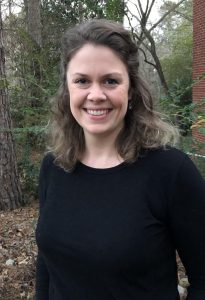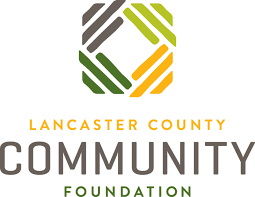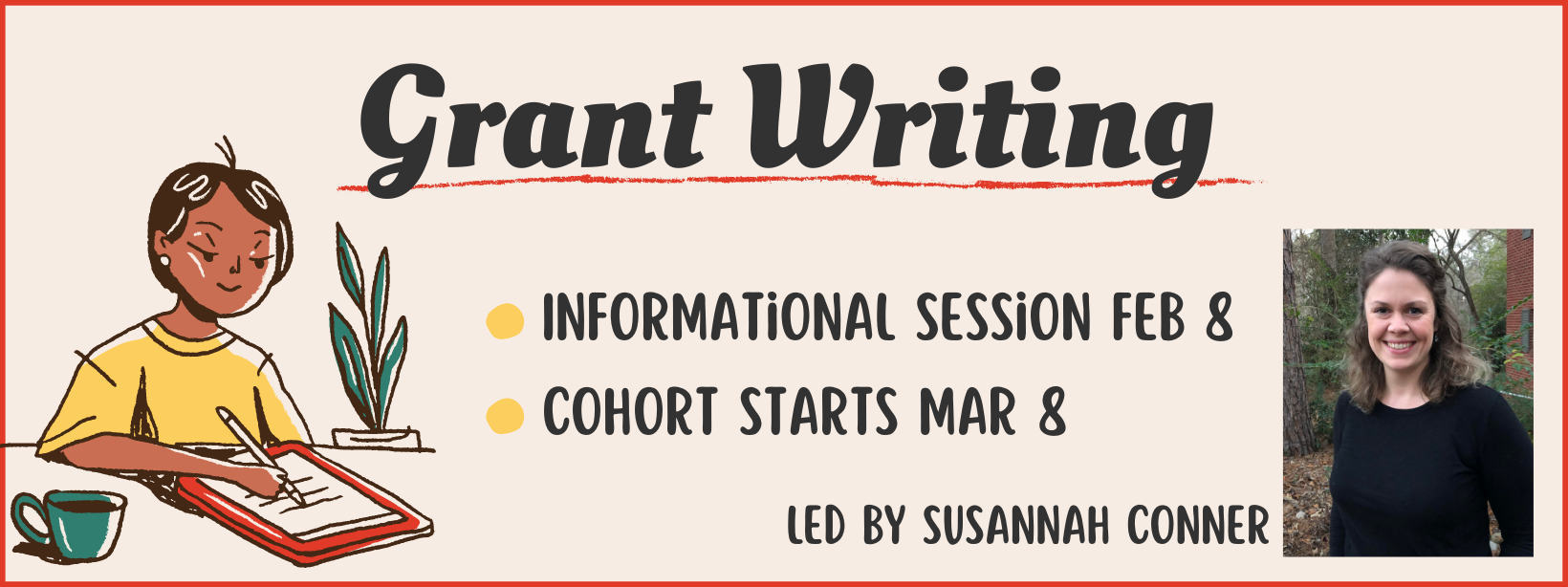-
Grant Writing - Intro
March 8, 2022
7:00 pm - 8:30 pm
This workshop is live online via Zoom.
Millions of dollars are available through structured local, regional, and national foundations, but the grant writing and application requirements can be daunting and difficult to decipher for small organizations on their own. Finding a good grant writer that fits your organization’s budget and goals is very difficult. As a result, many small organizations either give up on grant funding, or waste precious time and energy on applications that never bear fruit.
This course is for faith communities and small nonprofits looking to use grant funding to support their current operations or launch new projects. Our goal is to help small nonprofits maximize the efforts of their staff and volunteers working on development by: prioritizing a good fit between funding source and proposal, creating a strong program narrative, and providing concrete training on grant writing techniques.
To move forward with the cohort into four sessions and individual consultations, please submit (to rhoda@parishresourcecenter.org):
- Names and emails for your grant team (2-4 people)
- Are you a 501c3?
- Do you have a budget for last year and this year?
- What is the total amount of your budget this year (just the dollar amount, no need to supply the full breakdown at this point)?
- What is your organization’s mission statement?
- What is your project’s elevator pitch (3-4 sentences)?
The Cohort requires no tuition fees, but participating teams will be expected to attend all sessions, and required to demonstrate their commitment by paying a $50 fee to cover their 1-hour individual consultation with Susannah. In the consultation, organizations will work one-on-one with Susannah on their unique grant applications and emerging grants program.
The cohort will work through four sessions together, 7:00-8:30pm on March 8, March 22, April 5, and May 3. The first three will help each team produce a real or practice grant proposal through hands-on learning, take-home work, and expert support. The final session will help teams plan their next steps in creating a grant program.
- Identifying the Projects (Mar 8)—move from broad ideas and wild imaginings to no more than two specific programs or projects
- Identifying the Funders (Mar 22)—research grants and funders to find the right fit for your idea/org, process eligibility requirements, and map out preliminary grant requests
- Identifying the Narrative (Apr 5)—generate a strong narrative surrounding the Who/What/Where/Why/How of your proposed projects. Individual consultations will start after the third session, scheduled at the convenience of teams and Susannah.
- Structure, Planning, and Execution (May 3)—explore best-practices for planning, workflow, communication, financials, submission, and setting expectations for grant reporting
The cohort will be limited to no more than 12 teams to maximize individual attention and learning. Persons traditionally at a disadvantage in seeking grant funding – because of race, sex, disability, education, or other reasons – are especially encouraged to participate. Please contact us with any questions about accessibility issues due to language or other needs.
The introductory information session can be watched below by anyone interested in learning the fundamentals of grant writing, whether or not they are affiliated with an organization.
 Susannah Conner is an artist, grant writer, and development consultant based in Pocatello, Idaho. She received her B.A. in English Literature from UNC, Chapel Hill and her Master of Divinity from Duke Divinity School and is concerned with the convergence of storytelling and spirituality in all of her work. In her development work, Susannah specializes in fundraising for nonprofit, cooperative, and faith-based organizations. Much of her consulting focuses on building sustainable grants programs. Her holistic approach to development has included the creation of racial equity curriculum, primers on cooperative economics, and funder relations reports. She has released five studio albums as part of various musical groups, the most recent being a collection of songs written by women in prison over the course of two songwriting workshops she taught at the North Carolina Correctional Institute for Women.
Susannah Conner is an artist, grant writer, and development consultant based in Pocatello, Idaho. She received her B.A. in English Literature from UNC, Chapel Hill and her Master of Divinity from Duke Divinity School and is concerned with the convergence of storytelling and spirituality in all of her work. In her development work, Susannah specializes in fundraising for nonprofit, cooperative, and faith-based organizations. Much of her consulting focuses on building sustainable grants programs. Her holistic approach to development has included the creation of racial equity curriculum, primers on cooperative economics, and funder relations reports. She has released five studio albums as part of various musical groups, the most recent being a collection of songs written by women in prison over the course of two songwriting workshops she taught at the North Carolina Correctional Institute for Women.
Thank you to the Lancaster County Community Foundation for underwriting this series of workshops.

Venue: Virtual Meeting Space
